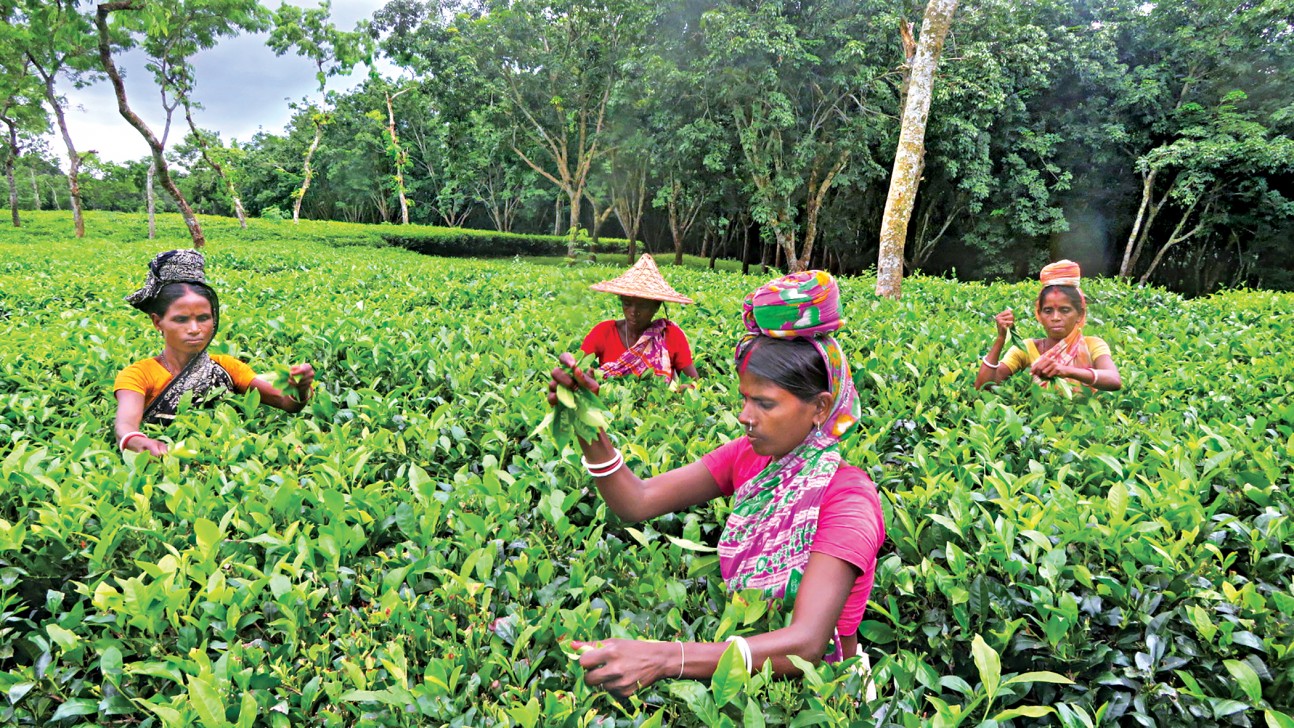Tea production surges on favourable weather

Tea production grew 23.62 percent to 52.53 million kilogrammes as of August this year, in an indication that may see the country pull off the highest yield on record at the end of the current year.
The production of the tea leaves by the country’s 166 tea gardens was 42 million kg in the first eight months last year.
If the current pace of production continues in the last four months of 2019, Bangladesh will set a new record for the past 165 years, thanks to good rainfall and favourable temperature, officials and garden owners said.
Some 67.38 million kg of tea was produced in 2015, which was 85.5 million kg in 2016, 78.95 million kg in 2017 and 82.13 million kg in 2018.
If the current trend remains unchanged, over 90 million kg of tea is expected to be produced by the end of the season in December, according to Mohammad Ali, director of Bangladesh Tea Research Institute (BTRI), and Md Jahangir Al Mustahidur Rahman, chairman of Bangladesh Tea Board.
Not only there has been an increase in production, the quality of tea has also improved, Ali said.
The total rainfall was about 3,315 millimetres in Sylhet Division this year, said Syed Ahmed Chowdhury, senior meteorologist of Bangladesh Meteorological Department in Sylhet. The division is home to more than 80 percent of the country’s tea gardens.
Although there was no rainfall in January, the number of days that witnessed rains has increased which is very useful for tea, he added.
Koloti Robidas, a tea worker of Bharaura tea garden in Sreemangal of Moulvibazar, said she has already collected more than 25kg of tea leaves every day this year owing to timely rains, whereas it was difficult to pick 15 kg of leaves every day this time in the past.
KM Rafiqul Haque, director of the project development unit in Sreemangal of the tea board, said abandoned land of each garden has been brought under tea cultivation. Tea cultivation has also increased in micro-farms in Panchagarh and Lalmonirhat.
A large amount of tea can be exported after meeting local demand this year if the ongoing pace of production is sustained, he said.
Haque said the BTRI has given proper advice on the control of tea moths and insects and this has had a positive effect on the production.
M Shah Alam, chairman of Bangladesh Tea Association, the platform of garden owners, said thanks to the various steps taken by tea garden authorities and the tea board, production was increasing this year.
Zahar Tarafdar, general secretary of the Bangladesh Tea Traders and Planters Association, said the quality of tea was not deteriorating on the back of direct auctions in Sreemangal.
Makhon Lal Karmakar, president of Bangladesh Tea Workers Union, said tea workers were very happy because of the increased production, which has helped them earn more.
Commercial tea cultivation started in 1854 in Sylhet’s Malinichhara tea garden. Currently, there are 166 tea gardens registered with the tea board. Of them, 91 are in Moulvibazar, 25 in Habiganj, 19 in Sylhet, 22 in Chattogram, seven in Panchagarh, two in Rangamati, and one in Thakurgaon.
The government has set a target to produce 74.14 million kg of tea this year.
